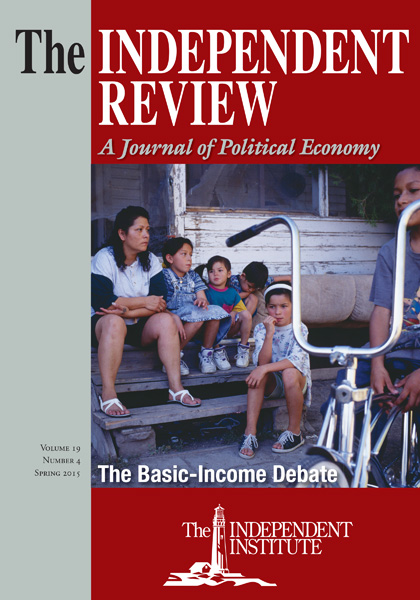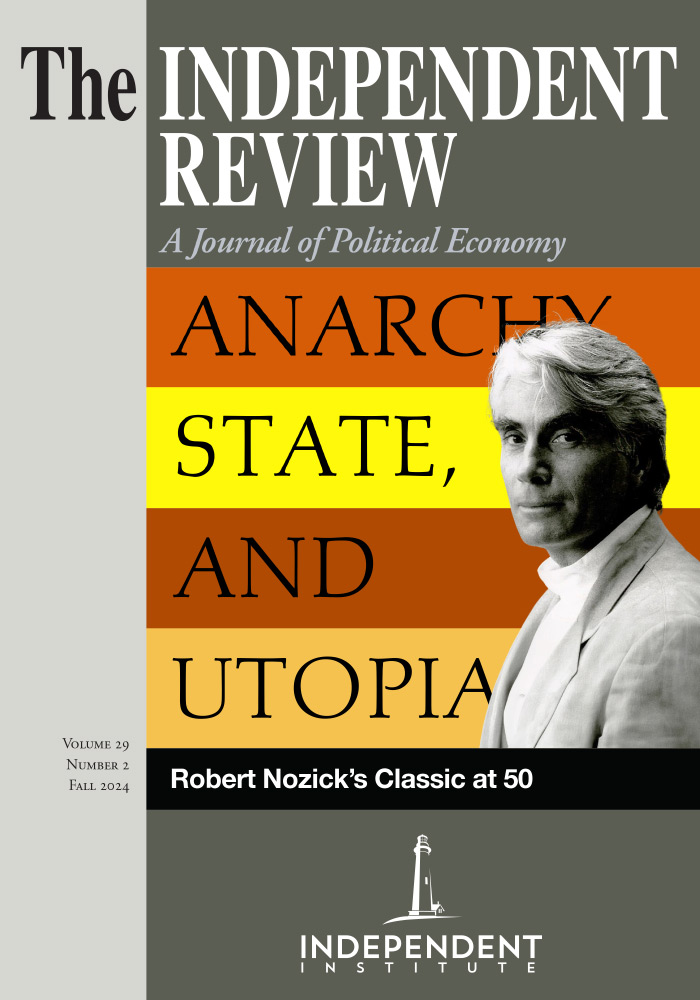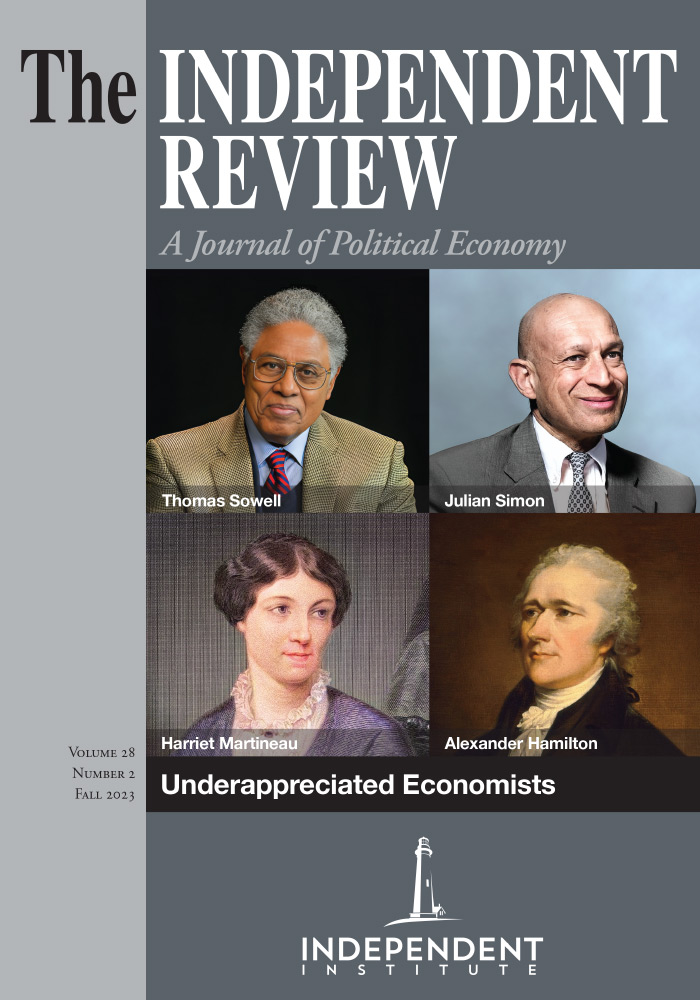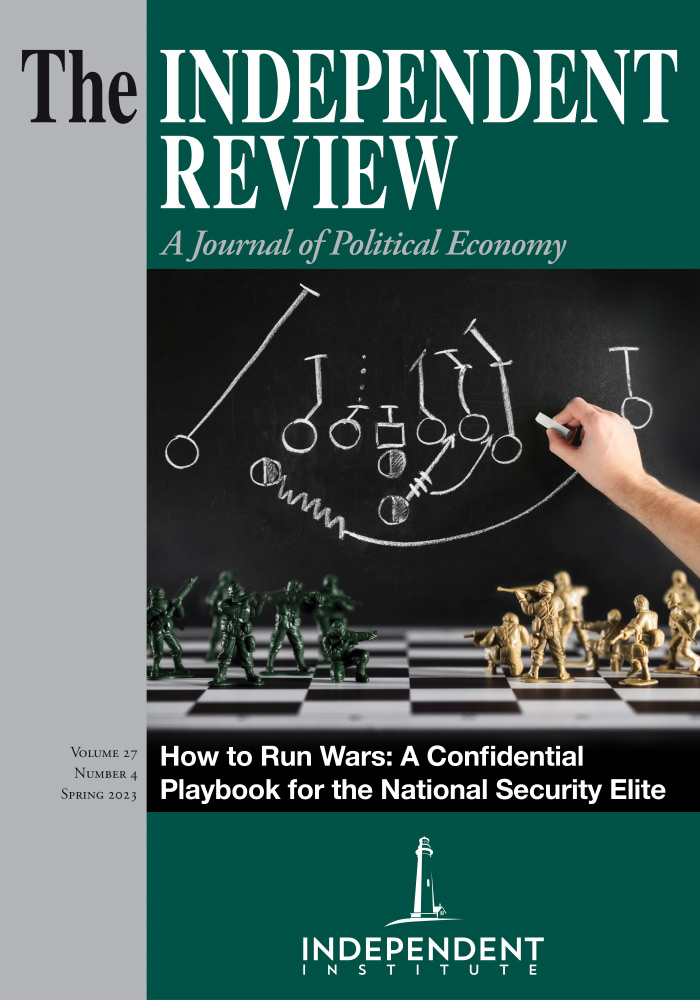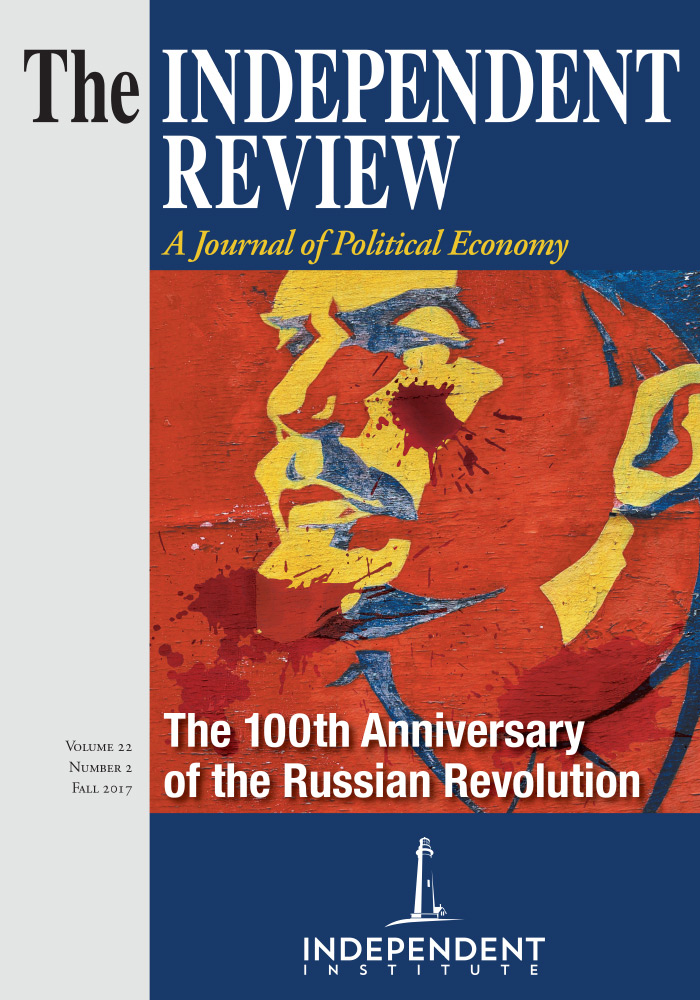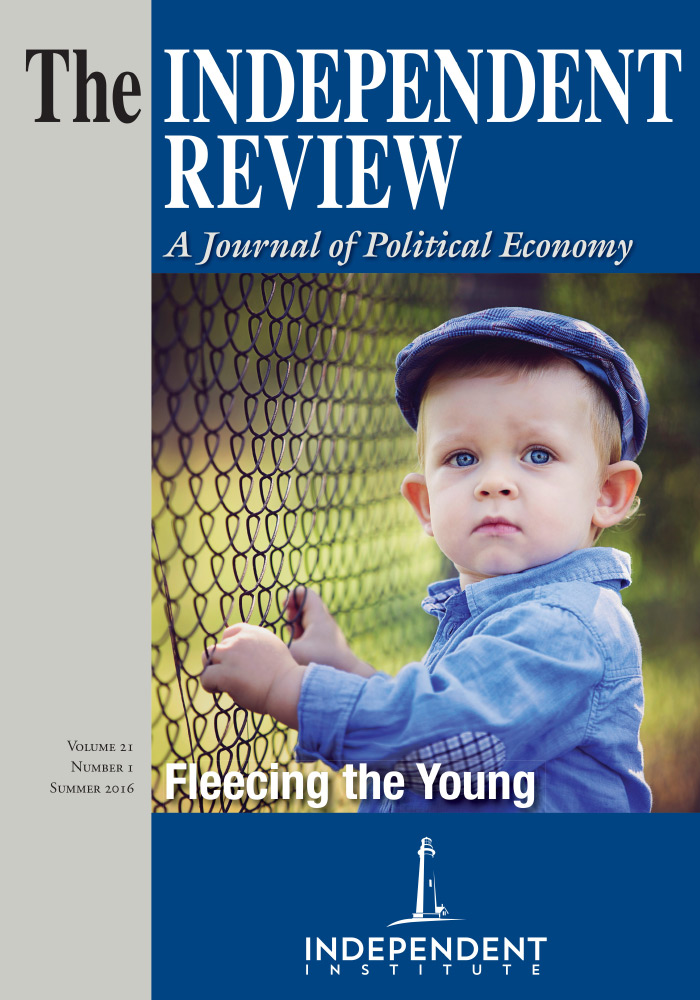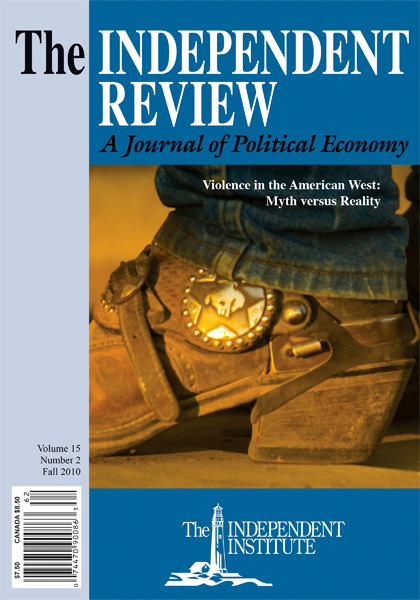A widely embraced social taboo against aggression is necessary, but probably not sufficient, to achieve and keep a free society. Empathy and charity for the down and out also play vital roles.
Article
A ship cannot make much headway when it is held back by a sea anchor. In our voyage toward a truly free society, lack of compassion for the less fortunate acts as such an anchor.
All libertarians dream of a better world, but in their view the prerequisite for its realization usually boils down to something like a nearly universal embrace of the nonaggression principle (NAP). We have no doubt that such an embrace would transform the world for the better in countless ways. Yet, as we see the matter, even a world in which everyone observes the NAP might still lack some essential features required for people’s flourishing and for the preservation of that rightsrespecting wonderland.
One such missing feature is compassion for others—compassion not only as a feeling of empathy but also as a personal engagement in voluntary efforts to relieve others’ suffering and to act out our fellow feeling with all persons, not simply with those who are, either by their own efforts or by virtue of their good fortune, already flourishing or at least getting along fairly well.
We must recognize that regardless of the nature of the prevailing social order, many people are bound to be in trouble. Some are born with unalterable physical and mental defects and deficiencies. Others have lost limbs, physical capacities, or their sanity as a result of accidents or other damaging experiences. Some are children without parents or proper guardians or children suffering from parental neglect or abuse. Others are elderly and no longer capable of making their way through life without substantial assistance. Some have done everything a responsible person ought to do, yet they have run into bad luck again and again. Some have made bad choices. The foregoing list of examples might be extended in detail and at great length, but the point is obvious: even the freest imaginable society will include many people who cannot care for themselves either temporarily or permanently. So something must be done about them. This problem cannot be wished away, and we ignore it at our peril.
Notwithstanding the presence of many kinds of needy persons in society, many libertarians, for a variety of reasons that we will not spell out here, tend toward an indifference to those who cannot enter into beneficial exchanges with them, whether those exchanges be economic, social, or personal. “Quid pro quo” seems to be their chief motto. When other people present no opportunities for beneficial exchange, many libertarians seem uninterested in them, except to wish that such people would simply leave them alone. It is a progressive myth, of course, that libertarians hate the poor and the disadvantaged and that they are greedy and selfish to a pathological degree. Yet there is no gainsaying that many libertarians, in particular those who have come to libertarianism by way of Objectivism (a creed in which altruism ranks as an unforgivable sin), have no interest in personally engaging those who are engulfed in great difficulties, especially when it seems that those people’s own bad judgment or willful misbehavior got them into their trouble.
Little reflection is required, however, for us to realize that no man is an island— and no man is simply a seasteader isolated from his fellow human beings by an oceanic barrier, either, however much some may regard such isolation as an appealing ideal (see Seasteading Institute n.d.). The trouble that others are in today, we may be in tomorrow, and should such misfortune befall us, we will long for our fellows’ understanding, compassion, and succor. Moreover, as libertarians, we will want such comfort and aid to be given willingly and ideally with gladness and kindness.
If our libertarian world should be one in which people scrupulously observe the NAP yet turn a cold shoulder to those whose suffering they regard as “none of our business,” we may well find that an incentive arises for those tempted by evil to organize the poor and unfortunate politically as a menacing legion that threatens to wreak societal mayhem unless something is done to relieve their plight. The big-city political bosses of the nineteenth and early twentieth century created their “machines,” such as New York’s Tammany Hall, in precisely this fashion. TomWolfe memorably portrayed a later such development, an exploitative reaction to the Great Society, in his little gem Radical Chic & Mau-Mauing the Flak Catchers (1970). Such politically organized legions of have-nots pose a threat to the essential nature of a truly libertarian society and to its very survival. Organized class warfare between the unfortunates and the fortunates may be more or less contained and accommodated in the kind of pervasively politicized world we now inhabit, but it would be fatal to the flourishing of a truly libertarian world. As Sheldon Richman has observed recently, “[A] libertarian society in which people generally thought that nonaggression was all they owed others would be a society that should fear for its future viability qua libertarian society” (2014, 14).
So, in a sense, we serve our own interest by doing what we can to make compassion and voluntary succor an essential part of our efforts to bring about a libertarian society. We hesitate to put the matter in precisely this way, however, because real compassion does not comport with such an ends–means calculation of compassion’s desirability. Compassion, as philosophers have urged for millennia, is itself a virtue rather than merely a form of prudential, instrumental action. Its value lies in our expression of something good that lies within the feasible bounds of human action. Blessed are the merciful, Jesus taught, for they will be shown mercy. But even if the day never comes when we desperately need to be shown mercy, showing it to others today remains just as blessed.
Moreover, unilateral compassionate action has the capacity to produce a miracle of transformation in the minds and spirits of those for whom we feel compassion and then act accordingly. What passes for “public assistance” or “welfare” in our current world is almost universally recognized as a varied assortment of cold, impersonal, politically coerced, and bureaucratically administered transfers, resented by those who must finance them yet regarded as unfairly meager by those who receive them (Higgs 1994). Nevertheless, the beneficiaries, however unappreciative they may be, have shown that they can readily become welfare hustlers and bring up generations of children to be the same, losing along the way their genuine self-respect, their ability to assume responsibility for themselves and their families, and their willingness to make current sacrifices in the service of personally improving their condition in the long run. In contrast, compassionately given assistance, especially when given with kindness in caring, one-to-one relationships, holds the potential to bring its beneficiaries to an understanding of themselves as better people than they might have imagined themselves to be—sufficiently better that they become willing to set their feet on a truly promising path toward self-respect, self-responsibility, and self-support if their capacities permit.
It is not simply the watchful, prudent, caring monitoring that accompanies private charity that generally (though not always [Ziliak 1996]) makes it “work” so much better than government assistance. It is also the genuine compassion—the love, if you will—with which such assistance is provided. Gifts given out of transparent love have an uplifting transformative effect that gifts alone lack, however welcome they may be. It may seem maudlin for us to urge libertarians to be more loving toward one and all, but nothing is gained by hardheartedness, and much is lost if our goal is to build a better world, a world infused not simply with respect for our fellows’ natural rights but also with true compassion and care for all members of society, regardless of their current condition or what may seem to have been their own waywardness.
It may seem silly to propose that love is the answer, yet in certain regards it is simply the case that nothing else can get the job done. And we would do well to bear always in mind that the “job” being done brings blessings not only to those we lovingly assist but to ourselves as well. In true compassionate charity, the giver as well as the recipient may be transformed for the better. In any event, we ought never to forget that whenever the bell tolls, it really does toll for us, too.
References
Higgs, Robert. 1994. Nineteen Neglected Consequences of Income Redistribution. The Freeman 44 (December): 652–57.
Richman, Sheldon. 2014. What Social Animals Owe to Each Other. Future of Freedom, July, 9–15.
Seasteading Institute. n.d. Web page. Available at http://www.seasteading.org/. Wolfe, Tom. 1970. Radical Chic & Mau-Mauing the Flak Catchers. New York: Farrar, Straus, and Giroux.
Ziliak, Stephen T. 1996. The End of Welfare and the Contradiction of Compassion. The Independent Review 1, no. 1 (Summer): 55–73.
| Other Independent Review articles by Robert Higgs | ||
| Fall 2019 | Pressure-Release Valves in Participatory Fascism | |
| Winter 2018/19 | Two Worlds: Politics and Everything Else | |
| Fall 2018 | Against the Whole Concept and Construction of the Balance of International Payments | |
| [View All (62)] | ||

